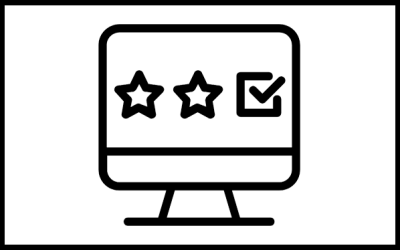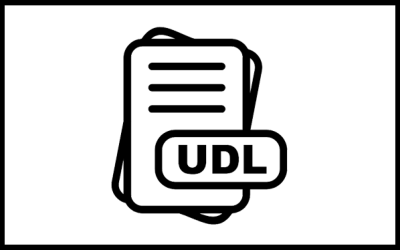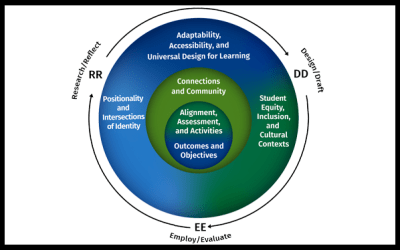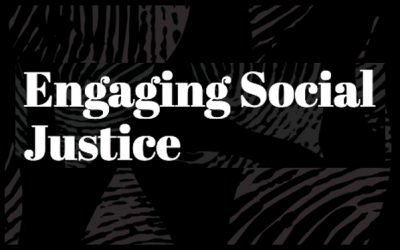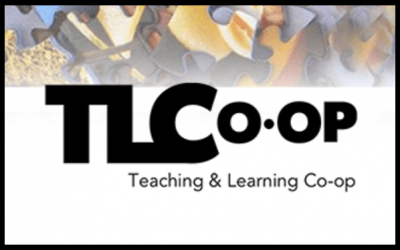As a result of hardships related to COVID-19 and many other stresses in present-day life for us and our students, many of us may be feeling compassion fatigue. This can lead to distress or burnout. In the article, “Are you experiencing compassion fatigue?” (2022),...
Alternative Grading: Using Contract Grading Effectively
by Kamarie Chapman, Senior Instructor, Theatre and Dance, WWU Overview The idea of alternate grading (ungrading) was presented to me during the spring quarter of 2021. All the courses were offered online and students could opt to take a class as Pass/No Pass up...
Collaborative Online International Learning (COIL)
The Institute for Global Engagement launched the Collaborative Online International Learning (COIL) initiative for the 2023-2024 academic year with information sessions and a program to award grants to its first cohort of Western faculty fellows. What is COIL? COIL,...
Connecting with Support Techs for Accommodations
New online course formats may require the implementation of new accommodations by providing course recordings, captions, real-time remote transcription, among others. Students with disabilities can work with the Disability Access Center (DAC) to determine how Western...
Do you think all students can learn? Think again…
by Deborah Hanuscin, Professor, SMATE and Elementary Education, WWU The belief that “all students can learn” is widely proclaimed in support of high expectations for all students, particularly diverse learners. I, too, have espoused this premise in the past as part of...
Equitable Assessment and Grading Methods
Traditional assessment strategies such as exams and quizzes are not always the most impactful way to measure student learning. Equitable assessment strategies provide students with opportunities to express their learning and growth in more than one way. This...
Equity in an Online Classroom
Contributed to the TLCo-op by Emily Gaston, Graduate Research Assistant of the Center for Instructional Innovation and Assessment, 2021. COVID-19 drastically altered how society functions, and the education sphere is no exception. Educators have been forced to rewrite...
Equity, Accessibility, & Privacy Considerations
For information, guidelines, and policies related to concerns about remote teaching, equity, accessibility, intellectual property, and privacy, explore the ATUS page: Equity, Accessibility, & Privacy Considerations See also: Equity in an Online Classroom Making...
First Steps: How to Begin Decolonizing Your Content
By Jennifer Riepl, Education Leadership & Inclusive Teaching Overview Working with Indigenous youth has opened my eyes to the many disparities in education, from elementary through university. As a math and history teacher, I’ve used many different textbooks and...
Fostering Health and Wellbeing in Classes
Teachers have an important opportunity to create a space for students that is centered on health, the environment, and the community. Possible Actions Make Your Course Accessible Practice Universal Design of Instruction. Ensure all pages, documents, and PDFs are...
Getting Started with UDL
by Deborah Hanuscin, Professor, SMATE and Elementary Education, WWU Universal Design for Learning (UDL) is a framework that is designed to give all students an equal opportunity to succeed. The UDL framework offers flexibility in ways students access material...
Heuristic for Inclusive Instructional Design (HIID)
The Heuristic for Inclusive Instructional Design (HIID) was created by staff at the Center for Instructional Innovation & Assessment and Outreach & Continuing Education as a questioning tool that could be layered with other instructional design methods to help...
How Can I Increase Student Buy-in in My GUR?
by Kiik Araki-Kawaguchi, Assistant Professor, English, WWU Common challenges in teaching larger courses (GUR) In teaching my recent GUR (around 60 students), I felt I struggled to gain the student trust, commitment, attendance, and involvement that I was used to in my...
HR Learning Library: Guidebook for Faculty: Designing for Student Resiliency and Compassion
Shared with WWU from the UW Resiliency Lab, the WWU Learning Library (requires login) includes the Well-Being for Life and Learning Guidebook, a new resource for instructors to aid them in designing learning environments that promote well-being. Combining research,...
Increasing Inclusivity in the Classroom
Why is inclusivity important? Starting college is a time of transition, and it can cause many challenges and stressors in students’ lives. Students from less privileged backgrounds may have a more difficult time transitioning into college. In the article, “Increasing...
Innovative Teaching Showcase 2017: Engaging Social Justice
The theme of the 2017-18 Innovative Teaching Showcase was "Engaging Social Justice." Explore this resource for great ideas for utilizing social justice in the practice of teaching. See also: Teaching Handbook: Social Justice Toolkit "When you make the decision to...
Learning: TLCo-op Workshops for Faculty
The Teaching & Learning Cooperative (TLCo-op) has facilitated workshops to help faculty develop courses for blended/hybrid and online courses every year since 2012. These workshops, sponsored by the Provost, focus on sound design practices and project development....
Learning: TLCo-op: Teaching & Learning Cooperative: Canvas Community
Members of the Western community may select “Join this Course” to join this self-enroll Canvas course to view recordings, slides, and resources from recent professional development offerings related to teaching, learning, and technology strategies. This is the...
Preparing for a Successful Online Course: Communicating with Students
When creating an online course, there are some key details to keep in mind in order to ensure success for both you as an educator and your students. These include clearly communicating your intentions with your students from the start, being prepared technologically,...
Preparing for a Successful Online Course: Preparing Strategically
When creating an online course, there are some key details to keep in mind in order to ensure success for both you as an educator and your students. These include clearly communicating your intentions with your students from the start, being prepared technologically,...
Pronoun Customization in Online Learning
Anyone can share their pronouns with online learning platforms such as Canvas and Zoom. This can help prevent instructors and other students from unintentionally misgendering one another, helping to create a more inclusive and welcoming online community. Explore...
Reclaiming and Diversifying College Office Hours
By: Rita Daniels, Associate Professor, Communication Studies, WWU Holding office hours is a typical university requirement for instructors. They allow students to receive additional support for course content, be motivated to do better, receive professional advice,...
Rethinking Workshop Models: The “Ikebana” Workshop Method
by Brenda Miller, Professor, English Department, WWU Why "Ikebana"? This model stems from what I experienced as a student in an Ikebana class here in Bellingham. Ikebana is the Japanese art of flower arranging; the compositions follow formal guidelines, but they also...
Teaching Handbook: FERPA Toolkit
FERPA compliance is essential in the classroom, but sometimes keeping up with FERPA compliance in a technologically advanced classroom can be confusing. Learn more about FERPA best practices... Teaching Handbook: FERPA Toolkit Image Attribution: Chintuzza - The Noun...
Teaching Handbook: Inclusive Teaching Toolkit
Creating an inclusive environment in the classroom is an essential skill to learn and the Inclusive Teaching Toolkit has resources to learn more about the subject. Visit the toolkit... Teaching Handbook: Inclusive Teaching Toolkit See also: Teaching Handbook: Social...
Teaching Handbook: Social Justice Toolkit
Engaging in social justice in a classroom setting is essential and the Teaching Handbook's Social Justice Toolkit has resources to learn more about the subject. Visit the toolkit... Teaching Handbook: Social Justice Toolkit See also: Building Classroom Community...
Theory of Margin (Power-Load-Margin)
Contributed to the TLCo-op by Emily Gaston, Graduate Research Assistant of the Center for Instructional Innovation and Assessment, 2021. The Theory of Margin, also known as the Power-Load-Margin (PLM) formula was McClusky's major contribution to adult and higher...




